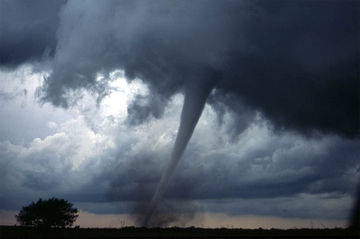Predictability

Predictability is a measure that represents how confident a particular outcome can be determined ahead of time. These forecasts can predict states either quantitatively or qualitatively.[2]
For example, accurate forecasts based on current observations are far easier if a system has a high predictability. Either the system has a select number of outcomes, or these outcomes happen in sequence with some observable trend, or there is a clear relationship between initial conditions and results. Conversely, a system with low predictability is more difficult to model and predict behaviour. Over time, certain behaviours may become predictable as more data expressing the patterns can be compiled and analyzed over a period of time. For some systems, although the probability of certain outcomes may be easy to predict, knowing exactly what will happen with some level of certainty may not be possible. For example, on a single roll roll of an unweighted dice the probability of obtaining some certain number is 1/6. It is clear that some number between one and six will come up, but there's no way of knowing which. Although the probability is easily determined, there is no way of increasing the level of predictability.
Predictability of the Climate System
The behaviour of the Earth's climate system changes slowly; essentially, climate is the long-term trends of the weather. Like any trends, these can be predicted with some level of certainty. Things such as the average temperature over a period of time or the general "type" of weather one place will experience is somewhat predictable. However, the climate is changing, and the results of these changes can be uncertain. Particularly, the effect that greenhouse gases will have on how the climate changes are uncertain. This is primarily because there are several different ways by which the climate could respond to increasing levels of greenhouse gases, either linearly or nonlinearly. Most concerning is the possibility of abrupt climate change, where the climate changes suddenly and drastically after responding in a fairly constant manner beforehand.
Weather, on the other hand, is the instantaneous or near-term state of the atmosphere in a given location with a low level of predictability. This is primarily because the evolution of future conditions on the Earth is extremely sensitive to small perturbations from average conditions. As a result of this sensitivity, the predictability of detailed future weather conditions is severely limited. This limit on the predictability minimizes how well the evolution of the climate and weather system can be predicted on a wide range of timescales. Both detailed predictions about the short-term weather as well as the slow-varying changes associated with global warming cannot be predicted with a high level of accuracy because the atmosphere is so sensitive to changes.[3]
As a result of uncertainty in initial conditions and errors that amplify through the forecast, estimations put two weeks as the longest time period that detailed weather prediction is possible for.[4] General climate predictions are generally accurate over a larger time scale, such as the predictability of average temperatures over seasons. Extreme weather events, drastic long-term climate changes, or even abrupt climate change can be predicted as a possibility, but it cannot be determined which of these, if any, will happen in the future with any degree of certainty.
References
- ↑ Wikimedia Commons. (November 29, 2015). DSZ Pics [Online]. Available: https://upload.wikimedia.org/wikipedia/commons/1/1a/Dszpics1.jpg
- ↑ Cambridge Dictionary. (November 29, 2015). Predictability [Online]. Available: http://dictionary.cambridge.org/dictionary/english/predictability
- ↑ Joan Ballester Claramunt. (November 29, 2015). Climate Predictability: Theory and Impacts at Seasonal and Climate Change Timescales [Online]. Available: http://www.ic3.cat/people/joanballester/files/phd_joanballester.pdf
- ↑ IPCC Working Group 1. (November 29, 2015). Climate Change 2001 [Online]. Available: https://www.ipcc.ch/ipccreports/tar/wg1/

